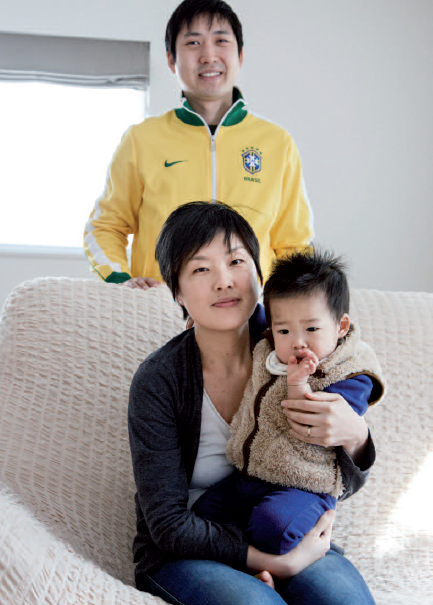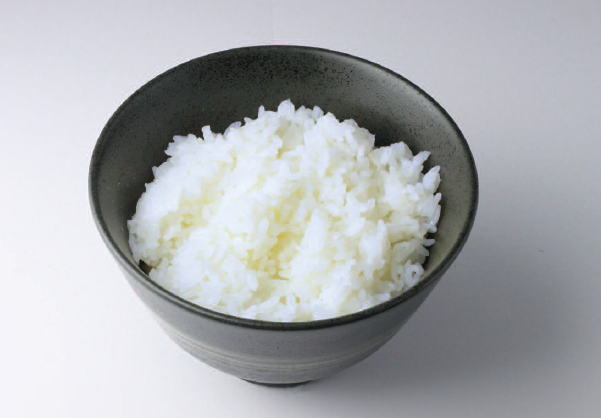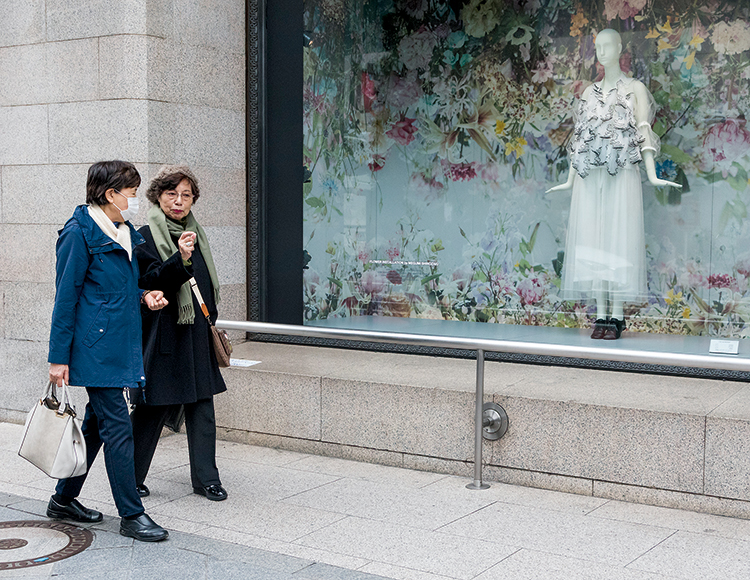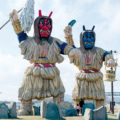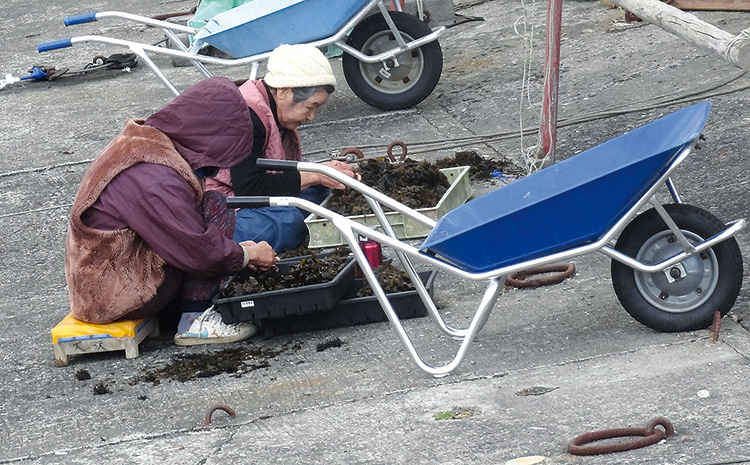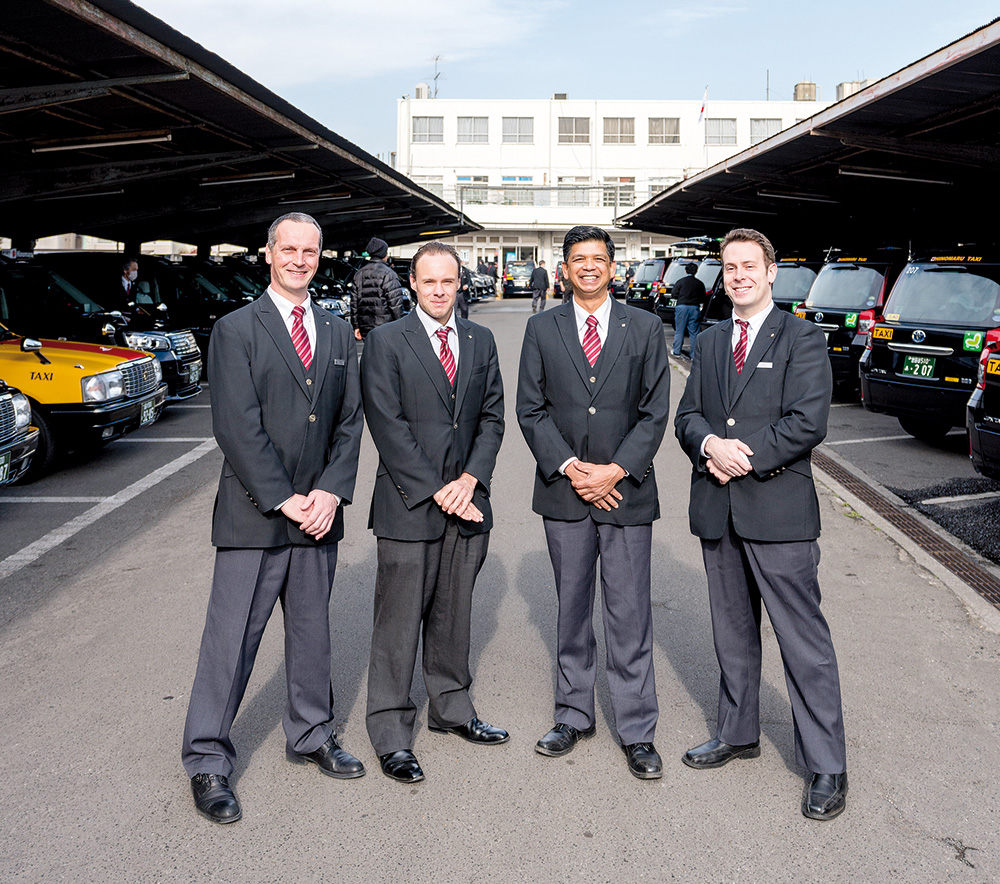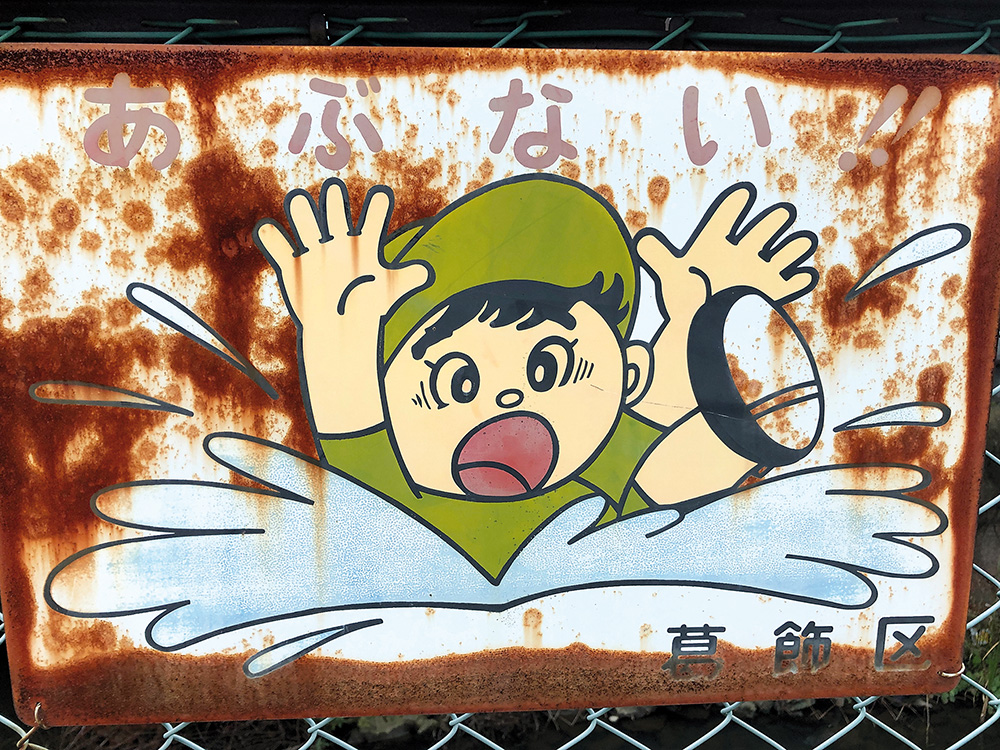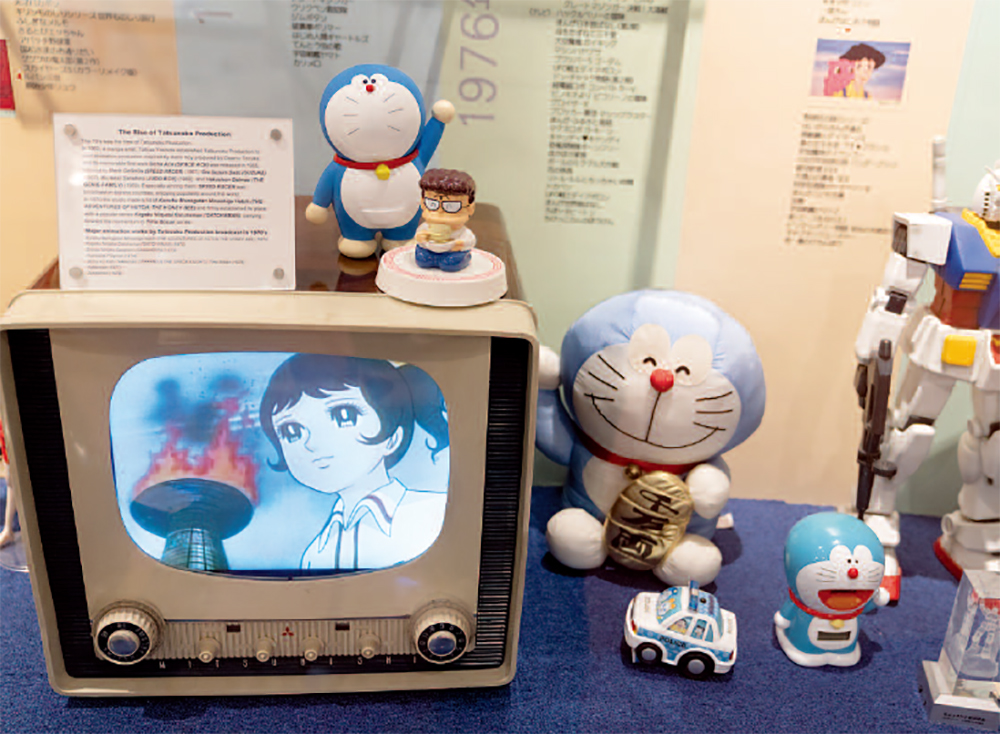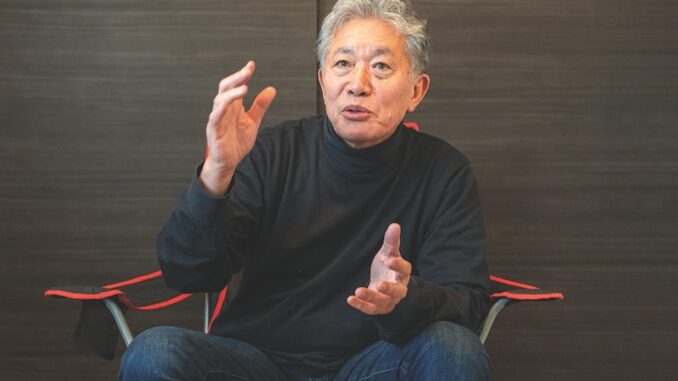
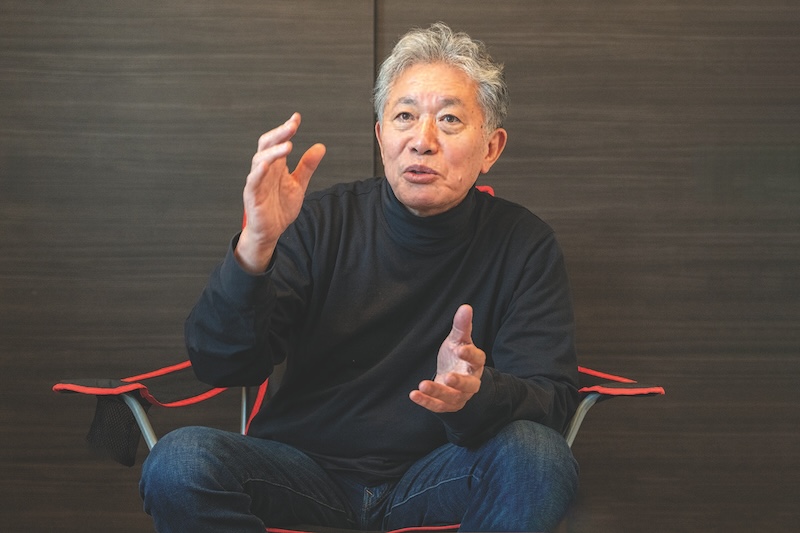
Back to the effects of the Covid pandemic on Japanese society. Other countries see Japan as a peaceful place where harmony is highly valued. However, in a previous interview, you talked about a surge in violent behaviour.
A worrying effect of the pandemic was what I call mutual monitoring of citizens. A growing number of people began harassing restaurants that remained open despite being ordered to close, and damaging cars coming from outside the prefecture during the state of emergency. The pervasive atmosphere created by social distancing and other policies allowed some people to think that it was acceptable to impose such sanctions indiscriminately and behave violently toward those who didn’t obey the rules. I find that mentality truly dangerous.
There was also a lot of social media bullying of “unscrupulous” shops and people by the so-called self-restraint police. I followed Twitter and noticed that the posts gradually became more aggressive. Though Covid was a natural phenomenon, the outbreak of an infectious disease caused by an unknown virus, it was made out to be a man-made “sin”. They found a target and focused their hatred on those people, becoming openly hostile towards those who thought differently about the disease and the response to it. Despite the fact that the issue was scientifically related to infectious diseases, many people began to say that they could attack those who had different opinions.
For a long time, we hadn’t seen ordinary citizens accusing their neighbours or taking part in excluding them from society. Our parents and teachers were from the wartime era, so they fought on the battlefield and saw how violent and cruel people could be. They witnessed how normally kind-hearted uncles and shy older brothers would calmly rob, burn, kill and rape when they had a good reason for committing violence. When the war ended, these men also returned to their normal selves and became ordinary citizens, but had deeply ingrained in their bones that humans are scary. That’s why we have carefully put in place a system in which laws, common sense and the Divine Spirit are always watching over us, so that ordinary people don’t have an excuse to unleash their aggression.
However, this coronavirus was different from war or school conflicts, and some people felt that it was okay to release their normally suppressed aggression. The discriminatory posts and abuse on social media were really shocking, but perpetrators probably thought that they weren’t causing any physical harm, so it was fine because they were just using words. I’m most scared of people who are insensitive to their own aggression and violence. In fact, there are people who suffer psychological damage and even develop serious illnesses as a result of persistent attacks on social media, so there is no dividing line between verbal and physical violence. It’s the same thing. As we know from history, in times of crisis like this, people are quick to jump to conspiracy theories and try to find a single enemy.
While online bullying increased, you have to admit that Japan did not experience a surge in physical violence as occurred in other countries. For instance, the number of murders in the United States increased by 30% during the first year.
Yes, but in Japan, the number of domestic violence reports in 2020 exceeded 190,000, the highest ever and a sharp increase of 1.6 times compared to the previous year. The number of children reported to child abuse consultation centres by the police due to suspected abuse reached an all-time high, exceeding 100,000. In the United States, one can easily get hold of a gun or other weapon. In Japan, gun possession is severely restricted, but violence manifests itself in the form of domestic violence and abuse. If people are restricted from social activities outside for a long period and are confined to their homes, living together in close proximity can become extremely psychologically stressful.
The difficulty of coexisting with others depends on whether or not one can secure some personal space. There’s blatant class disparity in this matter. In other words, wealthy families who live in spacious homes and are guaranteed plenty of personal space can avoid meeting face to face. Even if your family is at home and working remotely, if you can’t see their faces or hear their voices all the time, it won’t be so stressful. However, when the whole family has to gather in a small living room and you are forced to live and work cheek by jowl next to one another, the very sight of other family members can become upsetting. The pandemic has made clear that the poor are the most vulnerable to infectious diseases and the ones most negatively affected by it.
Speaking of online harassment and other forms of hostility towards those who think differently, I feel that in some respects, Japanese society can be quite intolerant.
Traditionally, there has been a lot of mutual surveillance in Japan, as if the country were a huge secret intelligence agency. On one hand, you have countries with secret police that constantly monitor all citizens. This is the current system in places like China, where the state centrally controls all citizens. However, Japan is different. Peer pressure is very strong here. Everyone feels a duty to monitor all those citizens who behave differently. From the government’s point of view, this is a very effective, low-cost surveillance system.
I would say that mutual surveillance has become stronger since the 1970s, and the direct reason is the student movement. Like in France and other Western countries, at that time there was a citizen movement, a labour movement and a student movement, and the whole country was in such a state that the government was unable to control it.
At that time, in 1968, Sun Myung Moon, the founder of the Unification Church [an organization, now called the Family Federation for World Peace and Unification, originating in 1954 after the Korean War and with strong ties to right-wing groups – Zoom Japan] established Shokyo Rengo, a political organization advocating “correct family values”, a constitutional revision and promotion of the “Shokyo” (beating communism) movement. Shokyo Rengo has been particularly welcomed in Japan where Sun Myung Moon was able to establish a close alliance with such people as businessman Sasakawa Ryoichi, then-Prime Minister Kishi Nobusuke, and yakuza boss Kodama Yoshio (all three suspected class-A war criminals). All those forces came together to prevent those citizens, workers and students from starting an independent movement and changing society.
Eventually, in the 1970s, student movements began to take a turn for the worse. From that moment on, the Japanese government’s top priority was to never allow such movements to arise again. To that end, they created a system that would make people conform and monitor each other. That’s why it’s often said that the nail that sticks out gets hammered down. And to be sure, there have been almost no major citizen, labour or student movements since those turbulent times.
Online harassment is one of the uglier aspects of the now pervasive internet culture. You can say anything on the internet, and you can easily criticize people anonymously. Of course, not everything about the internet is bad. Even you owe much of your success as a writer to your blog. What do you think about the role played by the internet in contemporary society?
Let’s start with the issue of anonymity on the internet. That’s a double-edged sword and can be used both in good and bad ways. People who want to make themselves look strong on the internet are bound to become aggressive. They feel like they have exerted some kind of strong social influence, and become addicted to the sense of omnipotence it brings. Although they have no social influence in real life, they have a chance to become famous online due to their destructive words and actions. They don’t understand that this sense of accomplishment actually undermines any efforts to grow as a true individual and member of the community.
This said, what’s circulating on the internet is just electromagnetic pulses. You can easily block it with a single click. If you don’t have access to the internet, your problems are over. Speech on the internet may seem to have a lot of influence, but it actually doesn’t have that much power.
But as you said, the internet can be both good and bad. This is the evolution of technology, and no one can stop it. Technology doesn’t necessarily come about because of social demands; sometimes it just happens by accident. The same goes for the atomic and hydrogen bombs and nuclear weapons; rather than being created out of social necessity, they are created by natural forces. The internet was probably created due to the momentum of things, and the same applies to AI. If a genius becomes absorbed in creating something new, he will follow that path no matter what. For me, the internet is a wonderful invention, but we should be more cautious about its dangers.
So far, we have mainly talked about problems with Japanese society and the political system, but, of course, this interview is not about Japan-bashing, so I would like to know what, in your opinion, are the good things about Japan.
What’s good about Japan? About the political world, I only have negative things to say, but, of course, there are many things that make Japan a wonderful country. The Japanese archipelago has a very rich natural environment and is an extremely fertile land that is completely different from France or the United States.
Here, many people quit their jobs and go into farming. I think it would be unthinkable in France. Can you imagine an office worker in Paris suddenly quitting his job and moving to the countryside to become a farmer? That just doesn’t happen. Also, in France, rural areas are closed communities and don’t allow outsiders to enter easily, but in Japan, partly because the rural population is aging, they welcome young people moving from urban areas to settle down, take up farming and start all sorts of new activities. They are very open-minded, so it’s not that difficult to move to such areas. In Japan, we enjoy a perfect combination of advanced agricultural technology and fertile land with copious rain. I think it’s a great advantage to be able to grow vegetables and rice even if you don’t have any special agricultural know-how.
It’s not often mentioned, but the fauna and flora are extremely diverse, making Japan a truly diverse natural environment. Then we have a rich traditional culture, we have a tolerant religious culture and a world-famous food culture. That’s why tons of foreign inbound tourists are coming to Japan right now. The food is delicious and it’s incredibly safe. I also think that customer service is the best in the world. When you go to France, customer service is basically close to zero, right? If you pay, you get what you paid for. However, in Japan, people who work in the service industry have the desire to serve customers and make them feel happy.
Many people from all over the world come to Japan repeatedly or even decide to move here, and one of the reasons for that is that we are a safe country. Even the Chinese and Koreans love us. Our governments may fight, but ordinary people love each other. That’s the most important thing to nurture a peaceful international society.
When talking to some of my friends and acquaintances, they often say they are glad to have been born Japanese. For example, they may go on a trip overseas, and when they come back, they praise that country’s food and culture, but, in the end, many of them say something like they are glad to be back, or that going abroad has made them feel how much they love Japan. Is it the same for you?
I think so. When I go abroad on a long trip and then come back to Japan, I feel relieved after eating Japanese food and drinking Japanese beer. Watching an Ozu Yasujiro movie feels good. Still, I guess that’s the case for everyone, right? After all, it’s only natural that you feel most at home in your hometown.
Well, in Italy, where I come from, people actually love to say bad things about their own country. Generally speaking, we talk about Italy’s shortcomings more than praising its qualities.
(Photographer Eric Rechsteiner) In France it’s exactly the same.
Then I guess this is a characteristic of Japanese people.
It’s true that a lot of foreign tourists are now coming to Japan, but when it comes to foreign affairs, it seems that the relationship between Japan and other countries is not all that good these days.
It’s really not good diplomatically. They don’t respect us at all. Prime Minister Kishida is in the top group of leaders who are not respected. Over the past 80 years, since the end of WWII, Japanese diplomacy has been all about America. Diplomacy is about building solid relations with other countries, and Japan has indeed been building diplomatic relations with South Korea, China, the ASEAN countries and Russia. After all, the most effective way to ensure security is to have a network of comprehensive trust and mutual support through close cooperation with various countries including the European Union. Japan’s problem is that it’s too attached to the United States, to the point that it has become America’s vassal. As a vassal state of the United States, Japan has had a strong military connection for a long time, and now most people are completely convinced that this is what guarantees Japan’s security. I think this is really crazy.
When I met a famous Japanese political scientist some time ago, I asked him what other scenarios he thought existed for Japan’s security other than the Japan-U.S. Security Treaty, and he couldn’t answer. He’d never thought about it. Isn’t it strange? If I asked an American political scientist what kind of strategy the United States has for security in the Western Pacific and East Asia other than the Japan-U.S. Security Treaty, he would reel off one option after another. Not so Japanese political scientists. They can see nothing beyond the Japan-U.S. Security Treaty. It’s fine to have such a relationship with the U.S., but shouldn’t we think of many different scenarios such as what to do with China and Russia to ensure the proper security of Japan’s national defence? Unfortunately, Japanese politicians and bureaucrats hardly think about it.
Interview by Gianni Simone
To learn more on this topic, check out our other articles :
No141 [FOCUS] Japan as seen by Uchida Tatsuru – 1/3
No141 [FOCUS] Japan as seen by Uchida Tatsuru – 3/3
Follow us !

